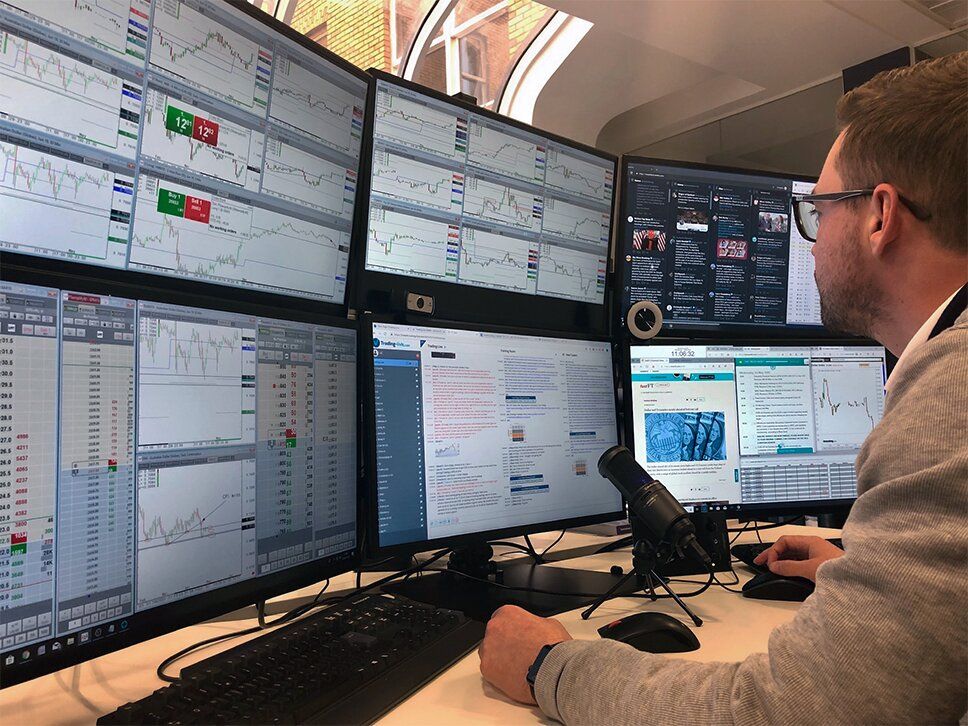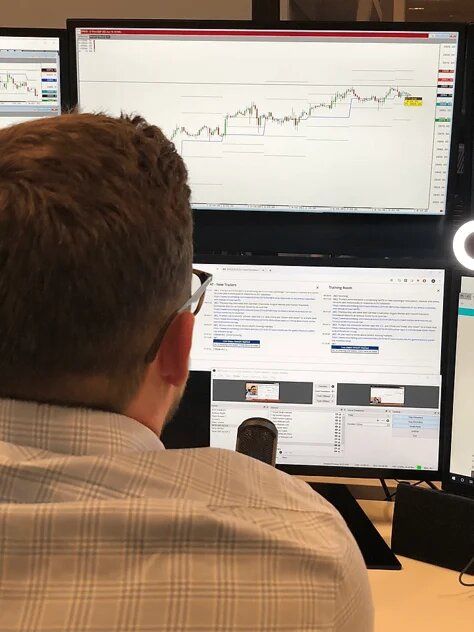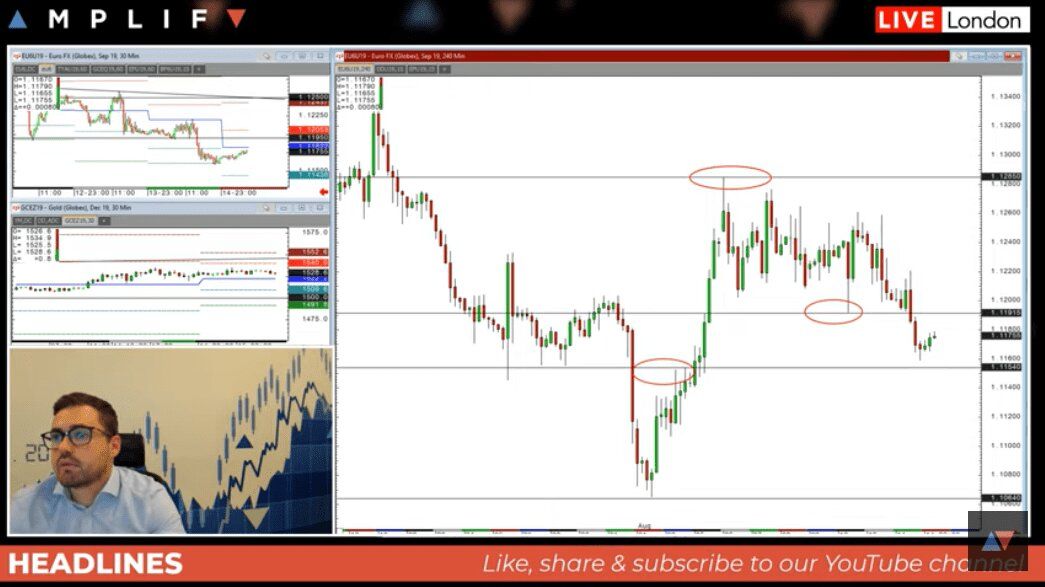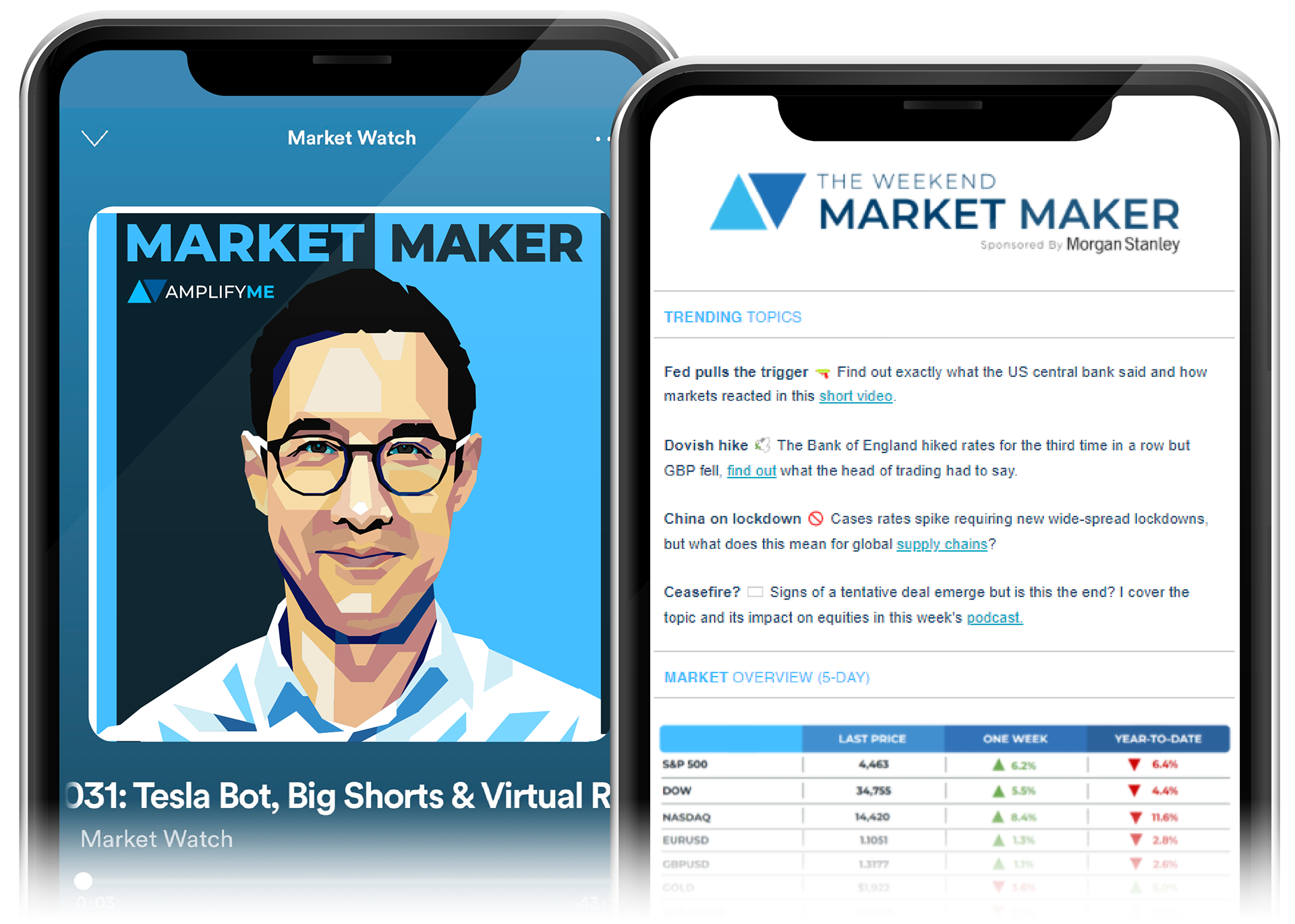Becoming An Intraday Trader
22 AUG 2019 | Careers
Amir Khadr - Head of Technology




Sam North at his trading desk
Amplify Trading’s Senior Trader, Sam North started out on his trading career back in 2014. Sam’s knowledge of Economics, Politics and Finance were limited when he started out, having trained as a scholar at Reading FC.
This led him to begin the process of trading from the ground up, focusing more on technical analysis first, before developing his knowledge of fundamentals.
“A common question I get asked all the time is, where can I learn about technicals and what are the key things I need to be aware of to do this full-time?"
On this note, Sam shares his top five steps to becoming an intraday trader.
Amplify Trading’s Senior Trader, Sam North started out on his trading career back in 2014. Sam’s knowledge of Economics, Politics and Finance were limited when he started out, having trained as a scholar at Reading FC.
This led him to begin the process of trading from the ground up, focusing more on technical analysis first, before developing his knowledge of fundamentals.
“A common question I get asked all the time is, where can I learn about technicals and what are the key things I need to be aware of to do this full-time?"
On this note, Sam shares his top five steps to becoming an intraday trader.

Sam North
1. Keep It Simple
It is important to know what the majority of traders are looking at. There are so many technical studies out there, that can make it seem quite overwhelming.
I would start very basic and look to broaden the tools you use at a later date. YouTube is a great resource and Investopedia is fantastic for a starting base. Be inquisitive and develop one step at a time.
I recommend watching Amplify Trading’s daily market briefing on YouTube to stay on top of what’s happening in the markets.
2. Best Places to Find Information
In addition to the resources recommended above, you can go in to much more detail. There are plenty of books out there, but you simply don't need to read 300 pages on candlesticks to become a good trader.
Initially, I would just focus on: Candlesticks, Support/Resistance and Charting Patterns for the basics.
At Amplify Trading, we have lectures on all the above where the information is a lot more direct and to the point.
Now days there is lots of freely available content that can be very useful. These range from Twitter accounts to podcasts, as well as traditional financial new channels.
Two good ones I can recommend are RANsquawk's daily market podcast and a weekly one from Barclays Investment Insights. These give me a short, sharp round up of what I need to know from a fundamental perspective.
However, the game changer for me is being surrounded by other traders. There is no substitute than learning from experience and sharing ideas with the team.
1. Keep It Simple
It is important to know what the majority of traders are looking at. There are so many technical studies out there, that can make it seem quite overwhelming.
I would start very basic and look to broaden the tools you use at a later date. YouTube is a great resource and Investopedia is fantastic for a starting base. Be inquisitive and develop one step at a time.
I recommend watching Amplify Trading’s daily market briefing on YouTube to stay on top of what’s happening in the markets.
2. Best Places to Find Information
In addition to the resources recommended above, you can go in to much more detail. There are plenty of books out there, but you simply don't need to read 300 pages on candlesticks to become a good trader.
Initially, I would just focus on: Candlesticks, Support/Resistance and Charting Patterns for the basics.
At Amplify Trading, we have lectures on all the above where the information is a lot more direct and to the point.
Now days there is lots of freely available content that can be very useful. These range from Twitter accounts to podcasts, as well as traditional financial new channels.
Two good ones I can recommend are RANsquawk's daily market podcast and a weekly one from Barclays Investment Insights. These give me a short, sharp round up of what I need to know from a fundamental perspective.
However, the game changer for me is being surrounded by other traders. There is no substitute than learning from experience and sharing ideas with the team.

Sam North
3. Three Simple Steps
When I teach students about trading and technical analysis in particular, I stress the importance of putting development into three key stages:
You can test yourself, write down different ideas, review when you got it right and wrong and whether there were any common themes behind the results.
There will be certain products and times where one technical way of trading is better than another - trade blotters and self-analysis can help so much here.
4. It’s A Marathon, Not A Sprint!
Can you trade just technically? Yes. Do you need to know technical analysis to trade? No.
There is no ‘one-way to trade’, but it is important to understand that the process takes time. Having a solid starting framework will help considerably.
Work out what technical tools work best on the products you want to trade, and for the time-frames you are focusing on.
5. In Summary
I cannot reiterate the point of keeping it simple to begin with and focus on what the majority will be looking at. Once a solid base has been established then by all means look to be more expansive in other technical tools.
The key is not to over-complicate your trading. When trading intra-day for the majority of the time I will only have Pivot Points on.
When you are about to make a trade, you should always:
Then review as much as possible. You are competing against people that do this for a living.
To help you being your own journey I thought it would be useful to get an insight as to my daily routine when I first arrive in the office.
Check out the video below. Leave a comment if you have any questions, and good luck on your own journey!
3. Three Simple Steps
When I teach students about trading and technical analysis in particular, I stress the importance of putting development into three key stages:
-
Identify areas where price could react (E.g.: Pivot Points/Highs of the day/Trend-lines/Moving averages)
-
Predicting the outcome of what happens at these areas correctly more often than not (E.g.: Price to go higher when we hit the low of yesterday, as well as a moving average being at the same point)
-
Management of a trade from these levels (E.g.: How to take profit/let the trade run/come out early)
You can test yourself, write down different ideas, review when you got it right and wrong and whether there were any common themes behind the results.
There will be certain products and times where one technical way of trading is better than another - trade blotters and self-analysis can help so much here.
4. It’s A Marathon, Not A Sprint!
Can you trade just technically? Yes. Do you need to know technical analysis to trade? No.
There is no ‘one-way to trade’, but it is important to understand that the process takes time. Having a solid starting framework will help considerably.
Work out what technical tools work best on the products you want to trade, and for the time-frames you are focusing on.
5. In Summary
I cannot reiterate the point of keeping it simple to begin with and focus on what the majority will be looking at. Once a solid base has been established then by all means look to be more expansive in other technical tools.
The key is not to over-complicate your trading. When trading intra-day for the majority of the time I will only have Pivot Points on.
When you are about to make a trade, you should always:
- Think, 'are the majority of the market also looking at this?'
- Try to always have two reasons to take on the trade. E.g.: Yesterday's High and Today's Support 1.
Then review as much as possible. You are competing against people that do this for a living.
To help you being your own journey I thought it would be useful to get an insight as to my daily routine when I first arrive in the office.
Check out the video below. Leave a comment if you have any questions, and good luck on your own journey!

Morning Briefing
If you are interested in learning more from the team, you can access further information on our trading programmes here.
If you are interested in learning more from the team, you can access further information on our trading programmes here.
The Market Maker daily
e-newsletter and weekly podcast
 99% said it helped them gain better knowledge of markets
99% said it helped them gain better knowledge of markets  70% said it helped them prepare for a job interview
70% said it helped them prepare for a job interview  Top 5% most followed podcasts globally
Top 5% most followed podcasts globally  Top 5% most shared globally in 2022
Top 5% most shared globally in 2022  Listened to in 84 countries world-wide
Listened to in 84 countries world-wide

Useful Links
EMPLOYERS
UNIVERSITIES
Contact
© Amplify Trading LTD (REG NO: 06798566) VAT: GB947568566. Registered England and Wales.
Useful Links
STUDENTS
EMPLOYERS
UNIVERSITIES
Contact
-

Amplify Trading, 18 St Swithlin’s Ln, London EC4N 8AD
-
 +44 (0) 203 372 8415
+44 (0) 203 372 8415
-
 info@amplifyme.com
info@amplifyme.com
© Amplify Trading LTD (REG NO: 06798566) VAT: GB947568566. Registered England and Wales.


